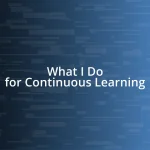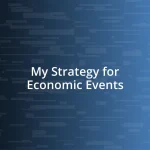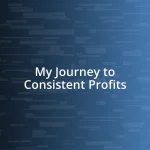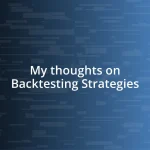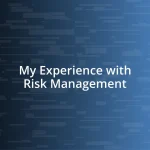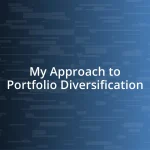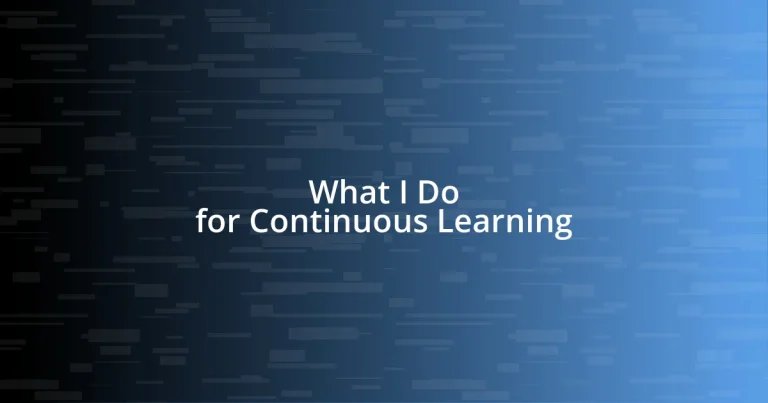Key takeaways:
- Continuous learning fosters personal growth, creativity, and adaptability by encouraging exploration beyond formal education.
- Setting specific learning goals enhances motivation and clarity, making the learning process more directed and satisfying.
- Engaging with others through professional development groups and seeking feedback significantly enriches learning experiences and accountability.
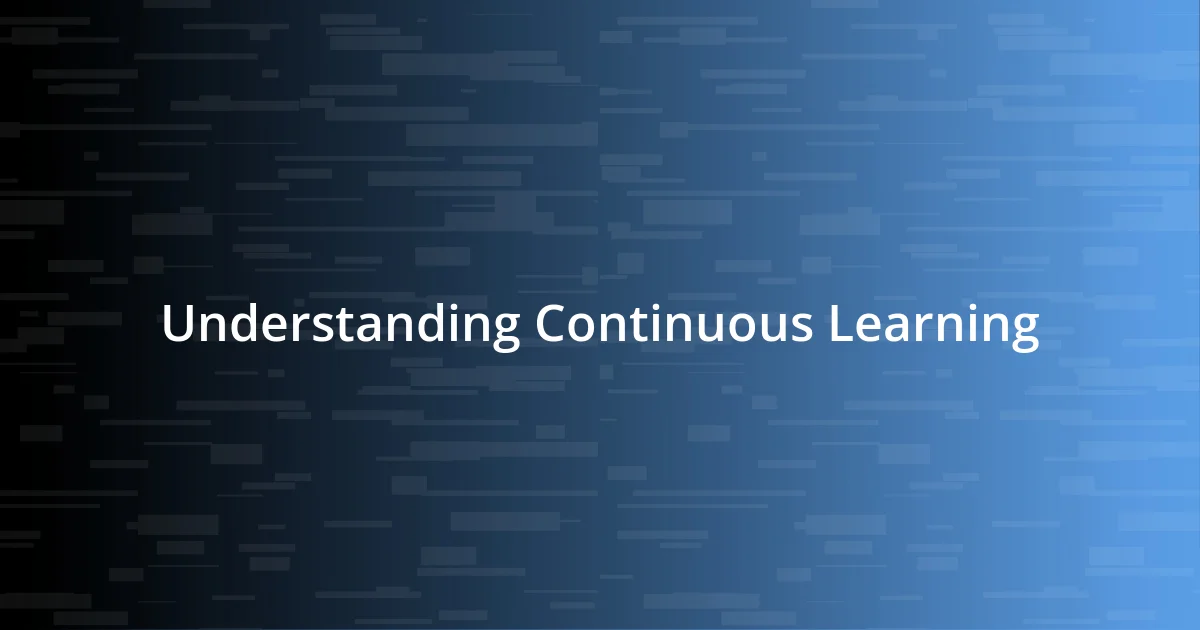
Understanding Continuous Learning
Continuous learning is an ongoing process that transcends formal education; it’s about nurturing a mindset that embraces growth and adaptation in every aspect of life. I remember when I first adopted this approach, feeling a surge of curiosity about topics I once found mundane. Have you ever experienced that spark when you delve into something new, only to find it opens up entire worlds of understanding?
Reflecting on my journey, I’ve realized that continuous learning is deeply rooted in everyday experiences. For instance, I once took a cooking class just to try something different. It wasn’t just about learning a recipe; it sparked creativity and re-energized my passion for food. How many times do we overlook opportunities to expand our knowledge simply because they seem unrelated to our careers or goals?
Moreover, embracing continuous learning often involves stepping outside our comfort zones. I vividly recall the anxiety I felt before giving a presentation at a conference, yet the thrill of sharing knowledge with an audience made it worthwhile. Isn’t it fascinating how discomfort can be a catalyst for personal growth?
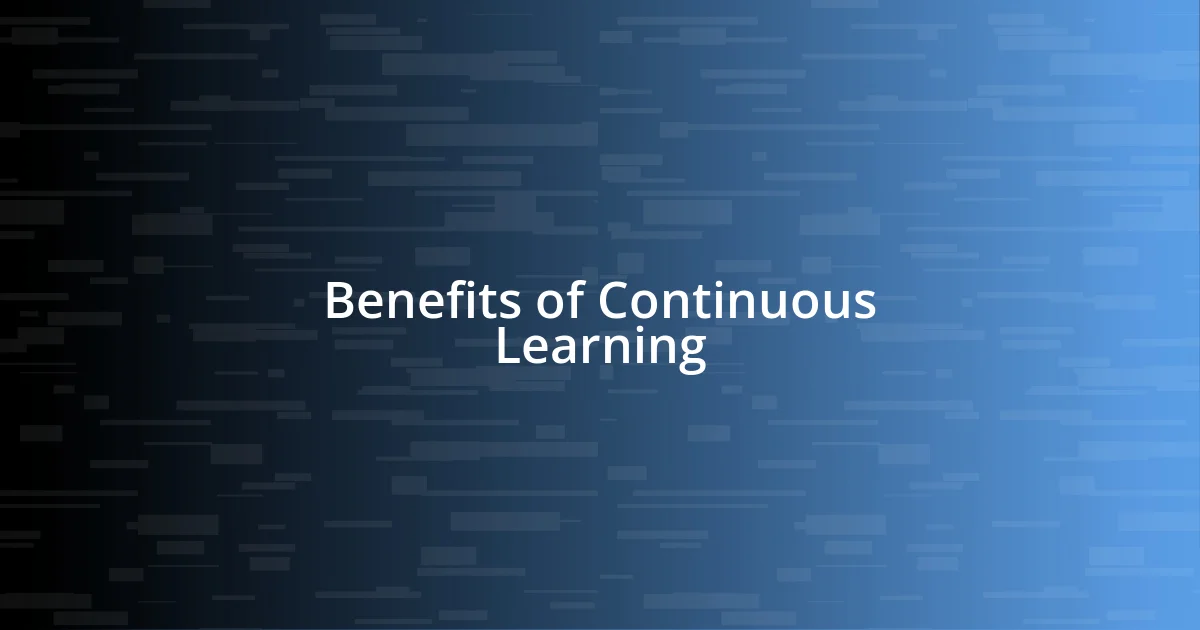
Benefits of Continuous Learning
Continuous learning opens doors to new opportunities, both professionally and personally. I remember the time I enrolled in an online course about digital marketing. Despite having limited experience, I found that the new skills I acquired not only enhanced my resume but also boosted my confidence. It was incredible to see how that knowledge translated into tangible results in my work—I even led a campaign that surpassed our targets.
Another benefit I’ve noticed is that continuous learning fosters resilience. The world changes rapidly, and adapting to these changes is crucial. I used to feel overwhelmed by the pace of technological advancements, but as I prioritized learning, I began to view challenges as exciting puzzles to solve rather than insurmountable obstacles. Have you ever felt that surge of pride after mastering something difficult? It’s a feeling that’s hard to replicate and gives me the motivation to tackle even bigger challenges.
Lastly, continuous learning enriches our interactions with others. I recall a discussion with a colleague about a new industry trend I had just studied. Sharing insights not only deepened our professional relationship but also sparked a lively debate that led to innovative ideas for our projects. Engaging in conversations with a broader knowledge base truly connects us with others, doesn’t it?
| Benefit | Description |
|---|---|
| Career Advancement | Building new skills opens doors to new job opportunities and promotions. |
| Adaptability | Fosters resilience in adapting to changes in the workplace and beyond. |
| Enhanced Relationships | Enriches interactions and collaborations by sharing knowledge with others. |
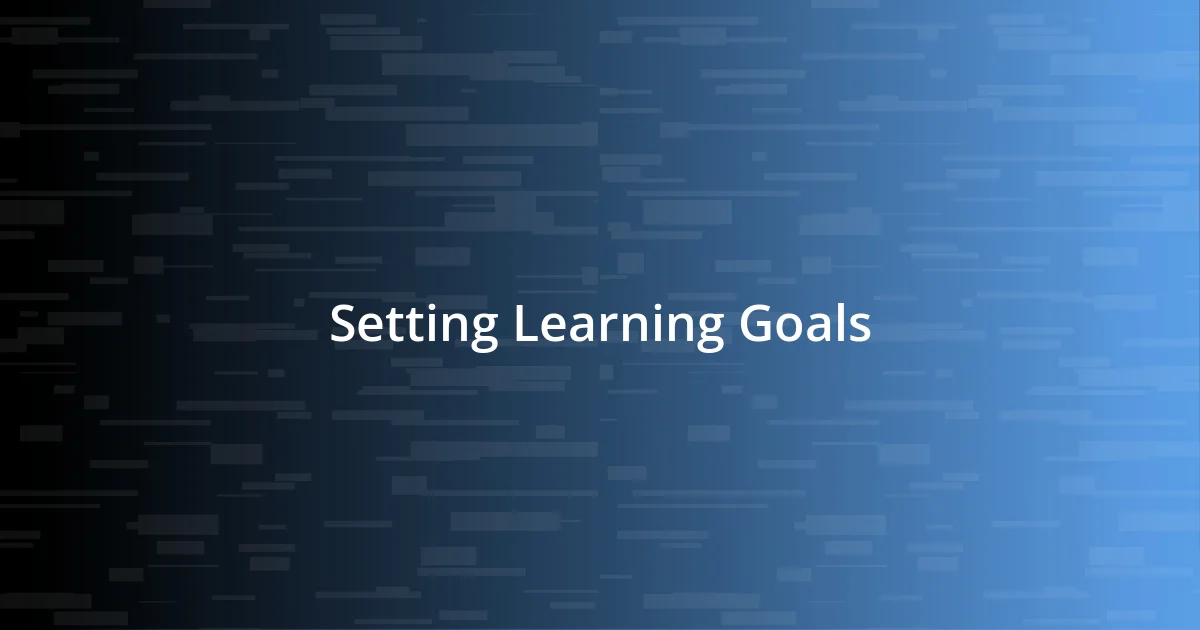
Setting Learning Goals
Setting learning goals is a powerful way to harness the potential of continuous learning. I often find that when I set specific, measurable goals, the learning process becomes much more directed and fulfilling. A few years ago, I decided to improve my public speaking. I set a goal to give a presentation at a local meetup every month. Each time, my nerves were overshadowed by the excitement of sharing my insights, which slowly transformed my fear into a passion.
- Make your goals specific: Instead of saying, “I want to learn more,” try, “I aim to complete a course on data analytics by the end of the quarter.”
- Set measurable outcomes: This could be achieved by assessing your progress through quizzes or feedback from peers.
- Establish a timeframe: Deadlines create urgency, motivating you to stay on track and evaluate your progress regularly.
- Reflect on your emotions: Consider how achieving those goals will make you feel. Will it boost your confidence? Will it ignite new interests?
- Stay adaptable: If you find that a goal is no longer serving you, don’t hesitate to adjust it. Learning should be flexible and responsive to your evolving interests.
I’ve learned that the clearer I am about what I want to achieve, the more satisfaction I feel as I make progress. My recent goal of learning a new language has opened up an entirely new culture to me, enriching my daily interactions and expanding my worldview. How wonderful it is to watch your goals transform from mere ideas into lived experiences!
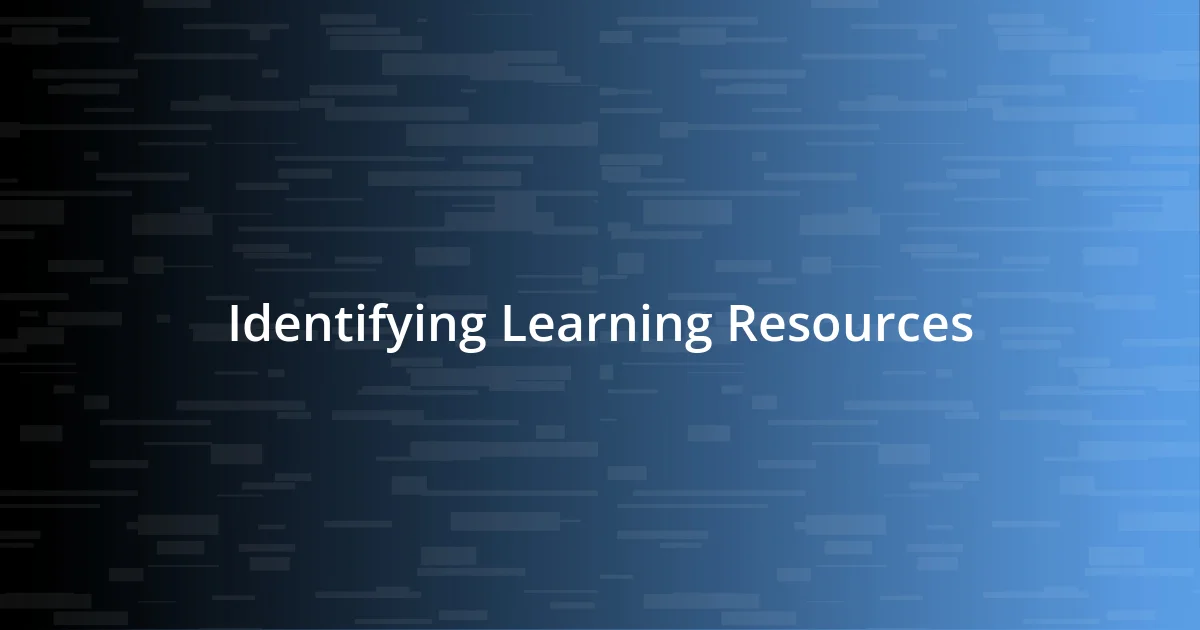
Identifying Learning Resources
Identifying the right learning resources can sometimes feel overwhelming, but I think it’s a fantastic opportunity to explore various avenues. When I first ventured into graphic design, I discovered a treasure trove of resources available online, from free tutorials on YouTube to comprehensive courses on platforms like Coursera. Have you ever stumbled upon a resource that sparked your curiosity and provided exactly what you needed? That happened to me when I found a beginner’s course that perfectly matched my learning style and schedule.
Moreover, it’s crucial to evaluate each resource for its credibility and relevance. For instance, I once enrolled in a webinar hosted by an industry expert, which turned out to be a game-changer for my understanding of user experience design. Hearing firsthand from someone with real-world experience made the content come alive. Trust me, a well-structured resource can make the difference between confusion and clarity!
Networking with peers can also unveil valuable insights into effective learning resources. I remember chatting with a colleague at a conference about the best books on leadership development. Their recommendation led me to a book that profoundly impacted my approach to managing teams. Engaging with others can uncover hidden gems that might otherwise go unnoticed—what’s one resource you’ve discovered through a conversation? Each interaction can lead to inspiration you didn’t see coming.
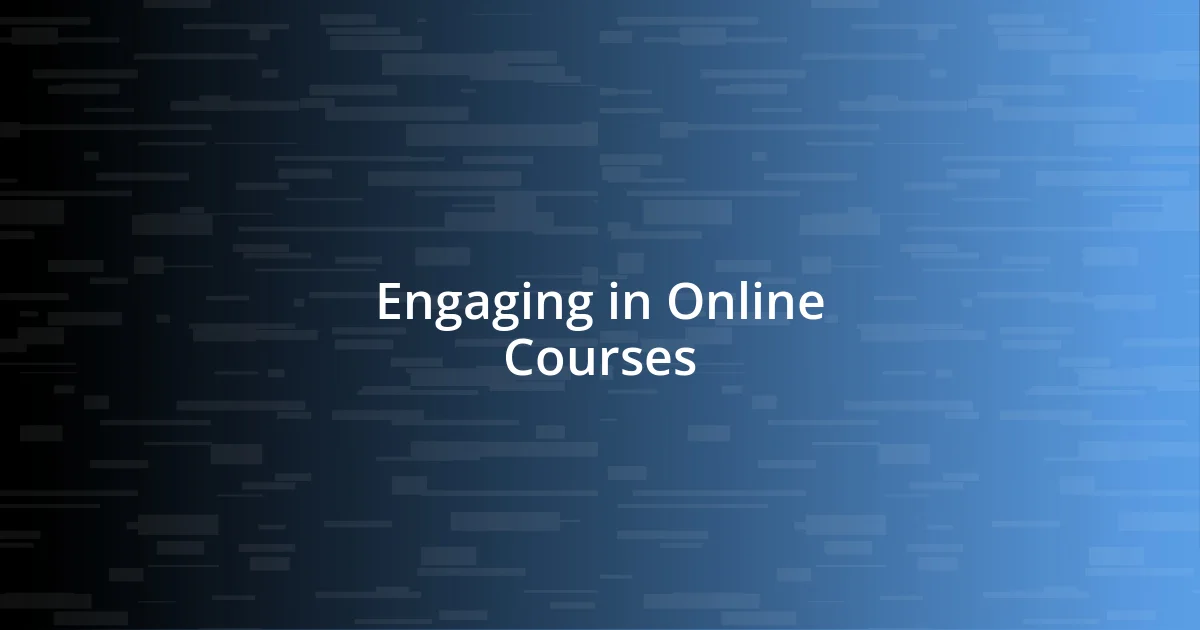
Engaging in Online Courses
Engaging in online courses has been a transformative experience for me. When I first tried it, I was struck by how much freedom it offered. I could learn at my own pace and revisit challenging concepts as needed. One course on digital marketing was a game changer; it not only boosted my skills but also reignited my passion for creativity. Have you ever felt that spark when you learn something new? It’s exhilarating!
I look for courses that not only cover the material but also include interactive elements like quizzes and community discussions. A few months ago, I took a course that featured live sessions with industry professionals. Those real-time conversations deepened my understanding and made the learning feel more personal. It reminded me of studying alongside classmates who shared my interests; the sense of community is truly motivating.
Another aspect I love is the variety of platforms available. From short video tutorials to long-form MOOCs (Massive Open Online Courses), there’s something for everyone. Once, I joined an online course that combined video lectures with engaging projects. The hands-on approach helped solidify my learning; I still refer back to the project I created! What about you? How do you choose online courses that resonate with you? Finding what works for you is key to making learning enjoyable and effective.
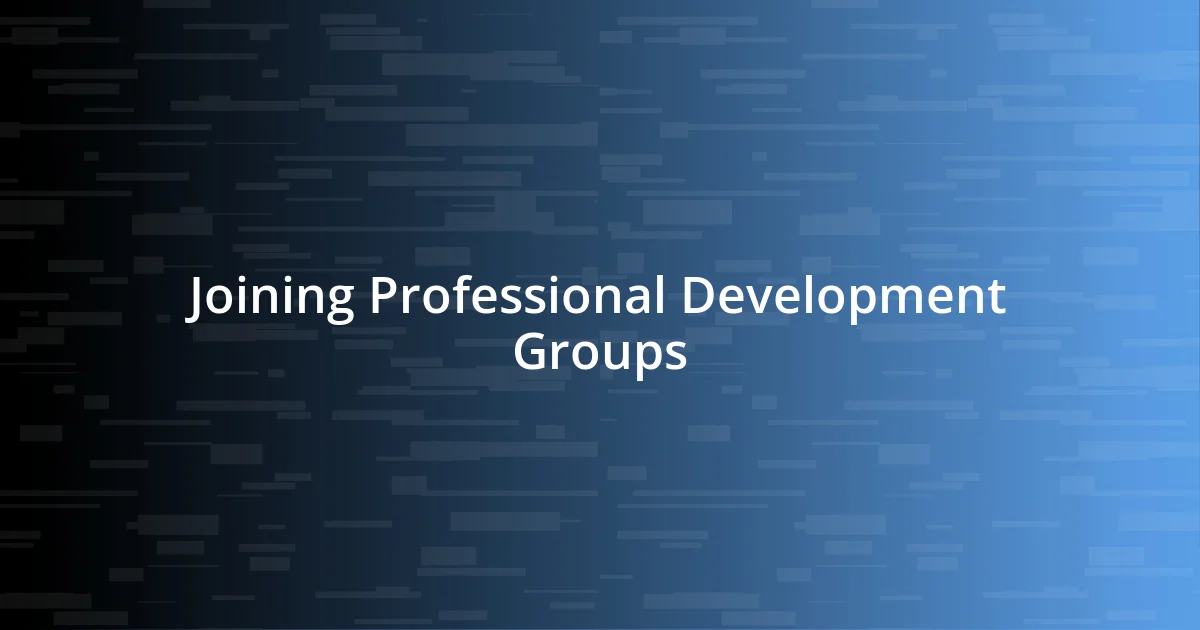
Joining Professional Development Groups
Joining professional development groups has been a pivotal part of my continuous learning journey. I remember the first networking event I attended—nervous but excited. I met individuals from diverse backgrounds who not only shared their experiences but also offered insights into industry trends that I hadn’t even considered. It was enlightening to realize that connecting with others can provide a fresh perspective on challenges we all face in our careers. Have you ever felt that rush of inspiration after meeting someone who just gets it?
Being part of these groups goes beyond just networking; it creates a space for collaboration and shared learning. For instance, participating in a local professional association allowed me to engage in workshops where I collaborated on projects with fellow members. This hands-on experience not only bolstered my skills but also fostered meaningful relationships. I often find myself wondering, how many ideas go unshared simply because we don’t take that first step to engage?
One of the most rewarding aspects I’ve discovered is the accountability that comes with being in a professional group. When I committed to a project alongside my peers, I felt an increased sense of responsibility to follow through. This camaraderie kept me motivated and pushed me to expand my skills. Have you ever noticed how being in a community can elevate your drive to learn? It’s incredible how much support we can find in shared goals and aspirations.
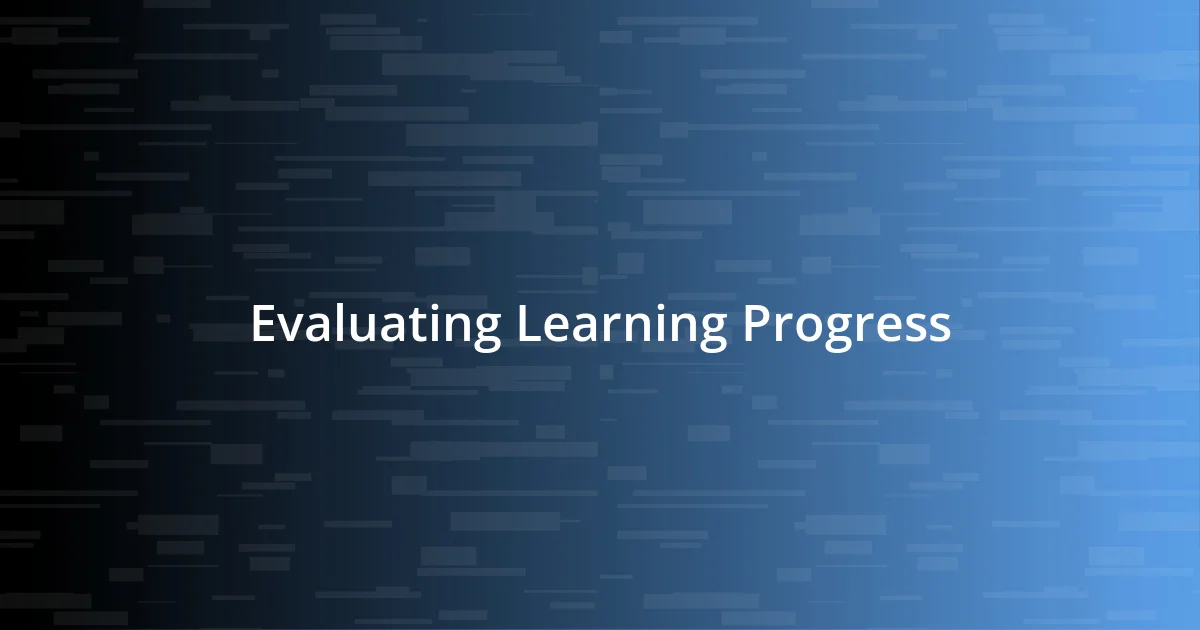
Evaluating Learning Progress
Evaluating learning progress is essential for ensuring that the effort we put into learning is truly paying off. I typically set specific milestones for myself, whether that’s mastering a new skill or completing a challenging project. For example, when I learned data analysis, I would reflect on my capability to interpret complex datasets as my benchmark. This self-assessment made me realize just how far I’d come, giving me confidence and motivation to push further.
I also find that feedback plays a crucial role in this process. After taking that digital marketing course, I sought feedback on my projects from peers and instructors. Their insights helped me identify gaps in my understanding, guiding me on what to focus on next. Have you ever received constructive feedback that completely changed your approach? It’s fascinating how outside perspectives can illuminate areas we might overlook ourselves.
Tracking progress isn’t just about milestones or feedback, though; it’s also about celebrating small wins along the way. I remember completing a particularly tough module and feeling a surge of accomplishment. Those moments, no matter how small, serve as powerful reminders that I’m on the right path. What feelings arise for you when you achieve a minor goal? Recognizing and appreciating these victories can fuel our ongoing desire to learn.

